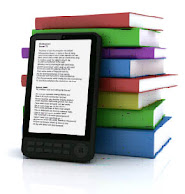Like most people born in the first couple decades after World War II, I had a dad and uncles who fought in that war. They all came home, though it's safe to say that some of them lived quietly with emotional trauma. They saw many people die horrible deaths.
I include troubled veterans in a number of my stories. They aren't 'bad guys,' but they are anxious or unsettled. I don't want people to forget the sacrifices they made.
A veteran features most prominently in Falling Into Place, the story of Everett and his family. It would be called literary fiction, and I sell few copies. I think it's the best thing I've written. Life is funny like that.My dad's poetry dealt with loss several times, though it wasn't presented as battlefield deaths. His Portrait Through Poetry mixes his poems with letters he wrote to his sister during World War II. I put this as the last one in the book (published after his death).
What Does the Future Hold? by Miles D. Orr
The snow will melt and we will see
that the rivers will always flow to the sea.
The tide will always ebb and flow
the sun will rise and set aglow.
The rain will come and the wind will blow,
thunder and lightening will hit below.
The earth will tremble and start to shake,
our homes will sway and begin to break.
And when the mountains decide to explode,
we will have a sea of lava, without a road.
I wouldn't call this pessimistic, but there an air of fatalism he didn't seem to have as a young man (based on stories from aunts and uncles).
And those letters he and his sister exchanged? They talked a lot about the books they read. She would send him one and he'd pass it around his tent, and read those the other flyers received from their families.
* * * * *
To learn more about Elaine, visit her website or sign up for her newsletter.


